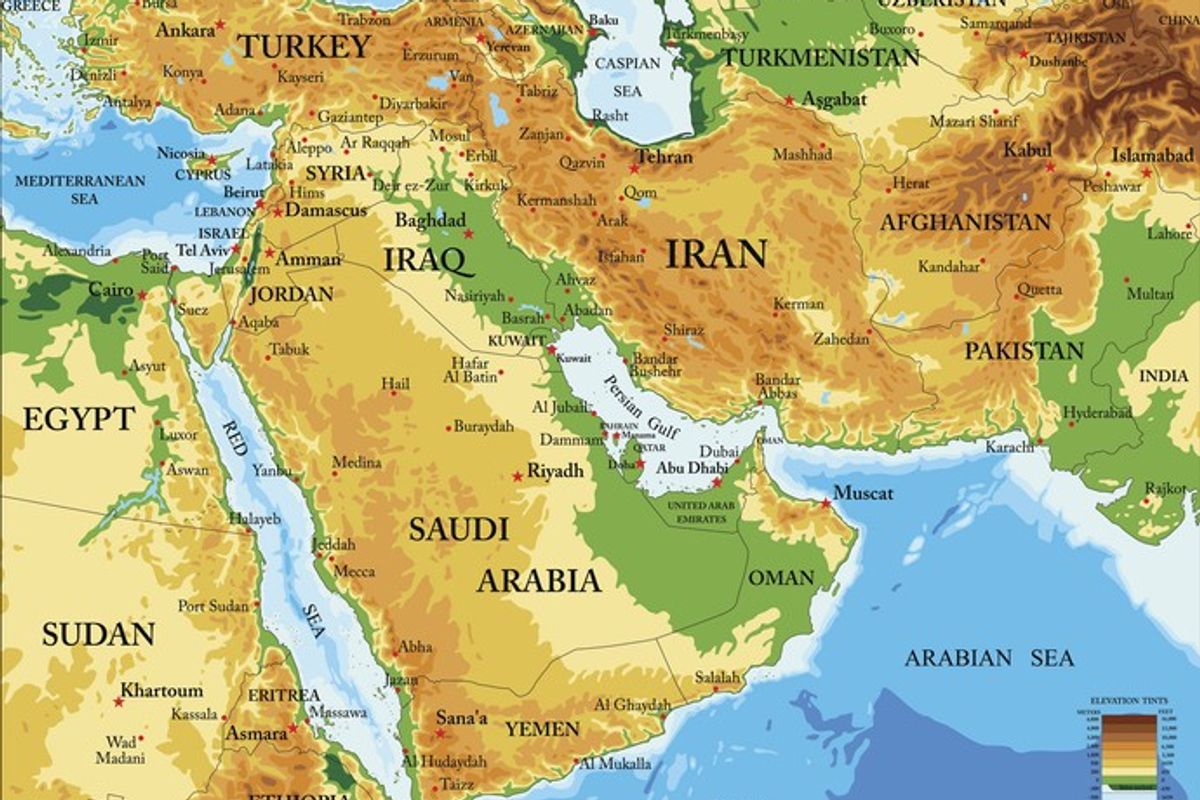The Sept. 25 Kurdish referendum has risked permanent damage to the relationship between the Kurdish Regional Government and the Iraqi government (GOI), but the blame may lie as much with inequities built into the structure of the Iraqi constitution as with the independent-minded Kurds.
The Iraqi constitution of 2005 and its very definition of the state has failed to empower its stakeholders or serve as an adjudicator of disputes within the state of Iraq. This most recent crisis is a golden opportunity to discuss the key structural fault-lines that have been either ignored or wrongly implemented. These fault-lines relate to decentralization, revenue sharing, the role of religion and other important identity and governance challenges.
Let us look at the latest crisis from this prism. The Kurdish leadership decided via their referendum to abandon the Iraqi constitution and instead set up their own new state in no too distant future and to challenge the post-World War I Sykes–Picot Agreement regional status. This vote was clearly not constitutional, but since the constitution has not been adhered to by most of its stakeholders, the vote was perceived as maybe just another issue to add to previous breaches.
Undertaking the referendum was a painful process in which Kurdish leadership sought local, regional and international support and thereafter approval, but to no avail. So far the international and regional response has overwhelmingly supported the position of Baghdad. Did the KRG bank too much on support through their international engagements? It looks like it, however, one cannot ignore their ability to lobby for support, mainly from the West, in our fragile region.
On the political front, the cost for the failure of the referendum project is clearer, as well as fallout that damages commerce, security and the fabric of Iraqi society if the Sept. 25th referendum is declared illegal. The question now relates to the ability of Irbil and Baghdad to work with each other and on what foundation their negotiation parameters is defined. And more importantly, will the 2005 constitution provide enough of a sound foundation for agreement and thereafter, stability?
The result of the referendum was never in question. There was overwhelming support from the Kurds to form their new independent state. This was not easily accepted by the Iraqi government or other countries, even more so as it was conducted outside KRG formal area of control.
From its side, the GOI declared this referendum void and claims it violates the constitution, which the Kurds played a key part in writing and approving back in 2005. The Iraqi government is now looking to turn the clock back, while KRG is determined not to lose what privileges they have gained over the last 14 years.
The Kurds have so far lost so much, and it looks as though they are still in the denial phase. We now face a clear standoff with no clear way out, least of all face-saving formulas for the key political leaders on both sides.
Local, regional and international stakeholders are now trying to mediate tensions by encouraging both sides to return to the negotiation table. There are several reasons for their involvement, not least security and political stability in a fragile region. Iraq’s neighbors, for example Iran and Turkey, fear that such instability will have a direct impact on their own national security challenges, especially with the aspirations of their own Kurdish populations.
On the other hand, international stakeholders are concerned about the ability of the Iraqi and KRG governments to focus on defeating Daesh (the so-called Islamic State) for good. Their cooperation has led to Daesh being on the defensive, and they have liberated towns and cities, allowing displaced Iraqi citizens to return home. But many of the underlying reasons for the birth of Daesh remain, with the Kurdish referendum being one expression of that.
To move peacefully forward, and since we can’t run the clock backward, constitutional change does need to be considered in due time. Let us not forget that the KRG did agree to the 2005 constitution, and hence, their sense of urgency in challenging this agreed contract does not look reasonable to Baghdad, or regional and international stakeholders. Following the defeat of Daesh, GOI does feel it has gained the initiative and that Iraqis will stand with it in their quest to keep the country united. Over the last few years, the KRG has lost a lot of its influence in Baghdad, and as a result, its ability to read Baghdad’s politics. This may lead to further miscalculation of the resolve of GOI to deal with this issue in which ultimately all options are on the table.
The necessary review of the constitution might be adopted by the various political parties as a key manifesto target for the upcoming national election in the spring of 2018.
The end game for this KRG vs GOI relationship is not defined yet, and there are many factors and players who will seek to influence and form this end game, while trying to prioritize the fight against international terrorism.
Apart from this referendum, both sides face many challenges on economic, political, security and social fronts. Can they cope with addressing such a deep and wide range of challenges while their limited energy is being consumed by this contentious and serious challenge to the unity and health of Iraq?
Iraqis have seen too much blood and war. They know better than anyone else that negotiations are the only way forward with their fellow countrymen. Let us take a courageous stand and get our house in order via a serious review of our joint social contract document – the Iraqi constitution.













